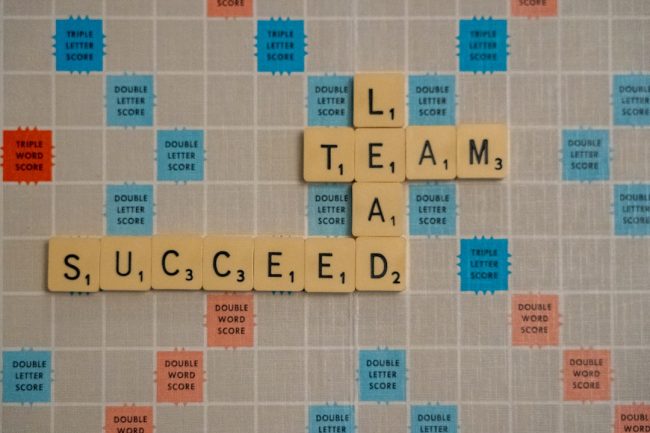Leveraging Serious Games’ Potential for Long-Term Skill Development In the constantly changing field of training and education, serious games have become a potent instrument for skill development. Serious games are created with particular educational goals in mind, in contrast to traditional games that are primarily intended for entertainment. They combine meaningful content with captivating gameplay to create an immersive experience that enthralls students and imparts necessary skills at the same time. Designs Digitally, Inc.
We acknowledge that serious games have the power to improve training programs’ efficacy and change learning environments. Serious games have applications in the military, corporate training, healthcare, & education, among other fields. These interactive experiences encourage motivation and engagement among students by utilizing the principles of game design.
We will learn how these components support efficient learning outcomes and retention as we dig deeper into the psychology of skill development in games. Making successful serious games requires an understanding of the psychology underlying skill development in games. The idea of intrinsic motivation is among the fundamental ideas at work. Students frequently feel a sense of autonomy, competence, and relatedness when playing games—three psychological needs that the Self-Determination Theory has identified.
Serious games are the perfect learning tool because they encourage people to take on challenges and learn new skills. To further improve the learning process, games frequently include features like challenges, rewards, and feedback loops. Players are encouraged, for example, to advance through levels or obtain achievements, which strengthens their will to get better.
In addition to making the process more fun, gamification of learning empowers students to take charge of their own growth. At Designing Digitally, we use these psychological concepts to develop serious games that engage students and promote purposeful skill development. Serious games have a significant effect on learning and memory retention. Comparing serious games to more conventional teaching methods, research indicates that students who play them retain more information. Games’ interactive features, which enable students to apply ideas in real-time situations, are to blame for this.
Serious games help students practice skills in a safe setting by mimicking real-world problems, which improves knowledge transfer and retention. Serious games also frequently encourage group learning opportunities. Players regularly collaborate to finish tasks or solve problems, which promotes communication & teamwork. In addition to increasing participation, this social component strengthens learning through peer interactions.
When creating serious games, we at Designing Digitally place a strong emphasis on teamwork to make sure that students can gain from common experiences and acquire critical abilities. Let’s look at a few success stories from different industries to demonstrate how serious games can help people develop their skills. The development of a serious game to instruct medical professionals in emergency response protocols is one noteworthy example from the healthcare industry. The game enabled players to hone crucial decision-making abilities under duress by immersing them in realistic scenarios. Participants consequently reported feeling more confident about their skills and performing better in real-world emergencies.
Another example of a successful corporate training program is one that used a serious game to help staff members develop their leadership abilities. Players had to manage a virtual team and make strategic decisions while navigating a variety of leadership challenges in the game. After finishing the game, participants reported feeling more equipped to manage leadership situations in real life. These case studies demonstrate the real advantages of serious games in promoting the development of skills in a variety of domains.
Effective learning is based on feedback, and serious games are excellent at giving players timely & pertinent feedback. Learners can comprehend their performance and pinpoint areas for development with the help of in-game feedback systems. Players are better able to modify their tactics & improve their overall learning process thanks to this instant reinforcement. In order to give learners helpful feedback at every stage of their journey, we at Designing Digitally place a high priority on integrating strong feedback systems into our serious game designs. Another essential component of serious games that enhances their ability to foster skill development is adaptability.
Serious games can adapt to different learning styles and speeds by customizing challenges to each player’s skill level. No matter their background or experience, all students will be able to interact with the material in a meaningful way thanks to this individualized approach. The goal of our team at Designing Digitally is to produce flexible serious games that maximize each learner’s potential for development and growth while meeting their individual needs. Effective serious game design necessitates a careful process that strikes a balance between interesting gameplay elements and educational goals.
The first step in our methodical process at Designing Digitally is determining which particular knowledge or skill areas require attention. This fundamental stage makes sure the game supports the intended learning objectives. After establishing the goals, we concentrate on developing an engaging story that draws players in. A gripping plot can increase players’ interest and encourage them to advance through the game.
We also use a variety of gameplay components, like challenges, rewards, and social interactions, to create an engaging learning environment that promotes experimentation & discovery. We also stress how crucial user testing is to the design process. We can improve gameplay mechanics & make sure the game successfully satisfies its educational objectives by getting input from real users. By putting the user experience & engagement first, we make serious games that not only impart useful skills but also make an impression on students that lasts. There appears to be a bright future for serious games in training and education as long as technology keeps improving.
We can anticipate even more immersive experiences that improve skill development as virtual reality (VR) and augmented reality (AR) gain popularity. With the use of these technologies, students can interact with the material in ways that were previously unthinkable and get practical experience in authentic settings. Also, serious games are probably going to become a standard component of corporate training programs as more & more organizations realize the benefits of experiential learning. Businesses are starting to spend money on cutting-edge training programs that use the concepts of gamification to improve worker performance and engagement. Our goal at Designing Digitally is to remain on the cutting edge of these developments by consistently investigating new technologies and approaches to improve our selection of serious games.
Alongside technological developments, data analytics is becoming more and more important in training and education. Serious games can produce useful information about learner performance and engagement levels, which can guide future training programs. Organizations can make well-informed decisions about their training strategies and make ongoing program improvements by utilizing this data. To sum up, serious games are a revolutionary method of skill development in training & education. These interactive experiences promote motivation, teamwork, & successful learning outcomes by fusing entertaining gameplay with educational goals.
At Designing Digitally, we are enthusiastic about using the potential of serious games to develop training programs that are effective and customized to each client’s specific requirements. Serious games will undoubtedly become more and more important in influencing how we learn and build our skills in a variety of industries as we look to the future. By adopting this creative strategy, businesses can equip their staff with the skills they need to thrive in a world that is constantly changing.
Contact us at Designing Digitally if you’re interested in learning more about how serious games can improve your training programs. We would be happy to help you establish and grow this program at work!













